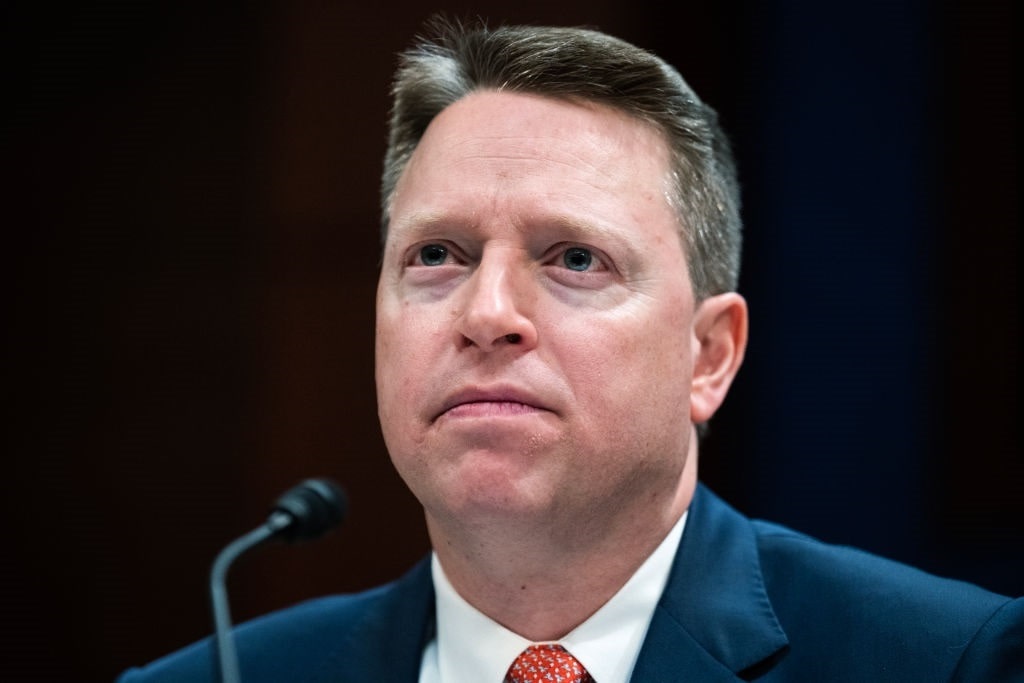China does not distinguish its economy and society from its military. They are an identity. On Jan. 17, that is what the House Foreign Affairs Committee (HFAC) learned in its hearing on how US investment in the People’s Republic of China (PRC) advances the capabilities of the People’s Liberation Army (PLA).
Worrying About US Dollars Going to China
In a display of bipartisan concern over the Chinese Communist Party’s (CCP) pilfering of US technology to enhance the PLA’s abilities, Chairman Michael McCaul (R-TX) and ranking member Gregory Meeks (D-NY) held a hearing on “Examining the Flow of US Money Into China’s Military Might.” Witnesses were the Honorable Matthew Pottinger, Foundation for the Defense of Democracies’ chairman for the China Program, and Peter Harrell, a non-resident fellow at the Carnegie Endowment for International Peace. The hearing was designed to inform lawmakers on pending legislation HR6349, which will expand efforts to deny investment in PRC military capability beyond the safeguards in the Export Control Act barriers.
In short, the proposed legislation empowers the president of the United States to “identify categories of technologies and products in covered sectors that may pose a particularly acute threat to national security of the United States if developed or acquired by a country of concern.” The legislation would provide for the creation of a list of companies and individuals proscribed from doing business or investing in corporations resident in countries that are enemies of the United States, such as China, Russia, Iran, and North Korea. And it establishes prior executive orders into law.
Fundamental to the witness testimony and the discussions that followed was China’s civil-military fusion doctrine. Harrell explained:
“This has been one of the defining societal doctrines in China, particularly under [President] Xi Jinping where under Xi Jinping thought … there’s [the] idea of mobilizing all of China in a society behind China’s ultimately military aims. So, what we have seen over the last … decade is increased efforts not only under official spending and subsidies but for a variety of regulatory mechanisms as well as informal mechanisms to galvanize China’s technology sector, universities, major SOEs [state-owned enterprises] behind China’s military might.”
The PRC citizenry is encouraged to report any potential opportunity to capture foreign technology or intellectual property useful to the military.
Outflow of US Dollars to the PRC

Matthew Pottinger (Tom Williams/CQ-Roll Call, Inc via Getty Images)
Two themes emerged during the committee discussion. The first involved whether it was of greater value to focus sanctions and regulatory controls on individual Chinese companies and entities or to take a broader business sector-wide approach. Pottinger pointed out that the entity-based approach requires the US government, most likely the Department of Treasury, “to look at each specific company that it wants to prohibit Americans from investing in.” However, the Treasury now has that authority based on executive orders generated by former President Donald Trump and President Joe Biden.
According to Pottinger, only “68 companies, to my knowledge, were ever designated for prohibition for investment in Chinese military-affiliated companies.” Also, he observed. “If you have a sectoral approach, that just said, ‘Look, American persons are not allowed to invest in these particular sectors relevant to China’s military surveillance state,’” consequently, the sector model would sweep up all the PLA-associated companies in a particular sector. This would eliminate having to ferret out and evaluate each company, which, when identified, has a habit of changing names to escape boycotts.
The hearing’s other central theme was identifying the second-and third-order consequences of investments. “US companies, financial institutions, and investment funds have — sometimes inadvertently, sometimes carelessly — helped underwrite and expedite the modernization of the People’s Liberation Army and China’s high-tech surveillance state,” Pottinger said in his written testimony to the committee. American venture capitalists may think they are investing in a Chinese commercial startup company, but what appears benign technology may have dual use to enhance the PLA capabilities. China’s civil-military fusion doctrine demands the startup share with the military. Pottinger offered an example:
“Artificial intelligence (AI) offers a similarly sobering view of dual-use technology’s potential. American investments have helped propel Chinese AI firms that are now at the forefront of commercial innovation. Yet many of those same innovations are just as useful at equipping the PLA with capabilities ranging from autonomous weapons systems to advanced surveillance.”
Additionally, US companies may have stakes in multinational entities that invest directly in CCP-affiliated entities as a second-order consequence over which the United States has no control.
Most committee members agreed that the outflow of US funds supporting the Chinese military is a national security problem. It is a troubling situation to realize that while US naval forces are confronting PLA-Navy and Air Force aggression in the South China Sea and Taiwan Strait, US dollars are making Chinese forces more capable.
The views expressed are those of the author and not of any other affiliation.




